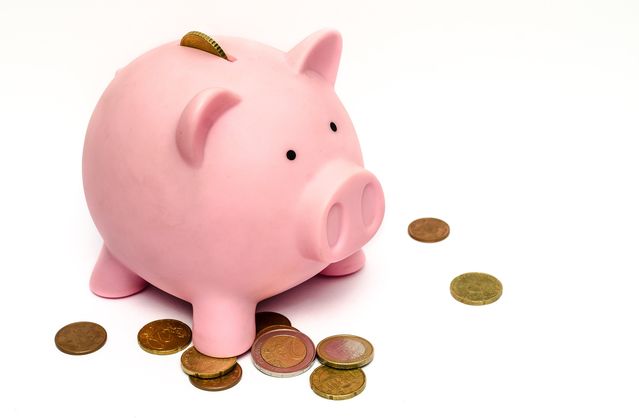Decision-Making
Make Smarter Choices About Money
Behavioral economists pinpoint mental pitfalls of financial decision-making.
Posted December 10, 2018
It’s that time of the year again, when people put on silly jumpers, sing songs about reindeer, and drink pints of mulled wine. It’s also the time when retailers rejoice because spending reaches a yearly high.

Anybody living in the Western world will have experienced the madness of Black Friday sales and the four weeks of frenzied shopping that follow. While appearing to stockpile groceries to last several months (and who doesn’t want to munch on stale Christmas cake in July?), people throw themselves into crazy gift hunts to satisfy friends, family, and cultural expectations. Finding a gift for your super-critical, never-happy in-laws, choosing a little something for grandma only to increase her collection of odd knickknacks, getting your partner a present that says “I love you” without wiping your bank account (a Tesco photo mug will do, right?), and—last but not least—buying that obligatory Secret Santa gift which no colleague ever cares for.
In this time of generous spending, financial prudence becomes ever more important (and challenging). But just how prudent are you when it comes to money?
Exploring irrational spending
Let’s engage in a little thought experiment and consider the following scenarios:
- Sam’s wisdom tooth has been bothering him for weeks. He’s been putting off the unavoidable trip to the dentist because his insurance won’t cover it, and he’s pretty broke after buying wagon-loads of Christmas gifts. Over the holidays, he receives a generous amount of cash from his favourite aunt. However, instead of using it to finally see the dentist, he treats himself to a new camera.
- Several months ago, Debbie spotted a gorgeous pair of boots in a high-street designer boutique. She loved the boots’ soft material and gorgeous red colour, but—after careful consideration—gave them a miss, because the price was plain outrageous and certainly not worth paying. On Christmas Day, Debbie finds the boots under the tree, beautifully wrapped by her partner Chris. She is quite delighted, even though she and Chris have joint bank accounts.
- In the run-up to Christmas, Alex decides to take the kids to London’s Hyde Park Winter Wonderland. After splashing out on family tickets to the Giant Wheel, Magical Ice Kingdom, and Zippo Christmas Circus, the kids are starving yet (vocally) decline the cheese and pickle sandwiches Alex had brought along. He ends up buying several portions of curly fries at prices suggesting they’re made of gold. Alex is usually very frugal and in any other context, he’d have outright refused to spend that sort of money on chips. But this situation is different.
Do you see what I’m trying to get at with my examples? Each of these little stories illustrates a different way in which our reasoning about money may violate rational economic principles. Taken together, all of them outline an irrational framework of financial decision making, which behavioral economists commonly refer to as “mental accounting.”
Mental accounting describes the peculiar way that many people think about finances. A key principle is the categorisation of money, i.e., mentally labeling or earmarking money for certain purposes. For example, people may mentally divide their monthly salary into a “groceries” account, a “bills” account, and a “personal entertainment” account, trying to stick to a specific mental budget for each account. By doing so, they hope to restrict spending on entertainment items and thus avoid running out of money for necessary expenditures such as regular bills.
While originally a useful strategy to keep track of money, mental accounting can also lead to irrational choices as demonstrated by the first example story of Sam’s overdue dentist visit. In Sam’s mind, the aunt’s money gift is an unexpected bonus meant to be spent on enjoyment. It was received as a present and is therefore earmarked for fun purchases—such as a fancy new camera! Due to this rigid categorisation, it doesn’t even cross Sam’s mind to spend the gift on displeasing necessities such as a dental treatment—however necessary they may be.
Let’s move on to our second story, where Debbie approves of the luxury Christmas gift she decided not to buy in the past. Surely, Chris should have bought her something that Debbie would have chosen herself? Well, not necessarily. With presents qualifying as a separate category within the framework of mental accounting, many people apply different—more generous—budget rules to gift items. In fact, an entire market has evolved to take advantage of these. Gift shops around the world tempt with pretty (but pretty useless) luxury items that nobody would ever buy for themselves but happily purchase for friends and family.
The third example was Alex’ irrational purchase of overpriced fries in Winter Wonderland. Why is Alex prepared to fork out more cash at a food stall than at his local fast food chain? The answer is context. When it comes to mental accounting, not only an item’s mental category but also the situation matters. Considering the overall amount of money spent on a day trip to the Christmas theme park, the cost of fries (even at abhorrent prices) will appear negligible. Because, well, it’s all relative!
If you found yourself empathising with Sam, Debbie, and Alex, you are certainly not alone! Only last week did I buy a totally overpriced box of posh chocolates for a colleague… Mental accounting is a common strategy to think about money, and the pitfalls outlined above are typical consequences (for additional examples, see here). A crucial precondition to navigating around these pitfalls is to be aware of them; the more you examine your own spending behaviour, the smarter you are likely to get. Good news—by reading this article you already took the first step!
If you are looking for a more affordable way to manage expectations of gift-giving this season, why don’t you have a look at cheaper (but way more fun and personal) DIY options? No matter if you’re creating handmade biscuits, scented candles or picture-perfect, aromatic jars of yogi-tea blends, both you and your friends will be winners this Christmas!


